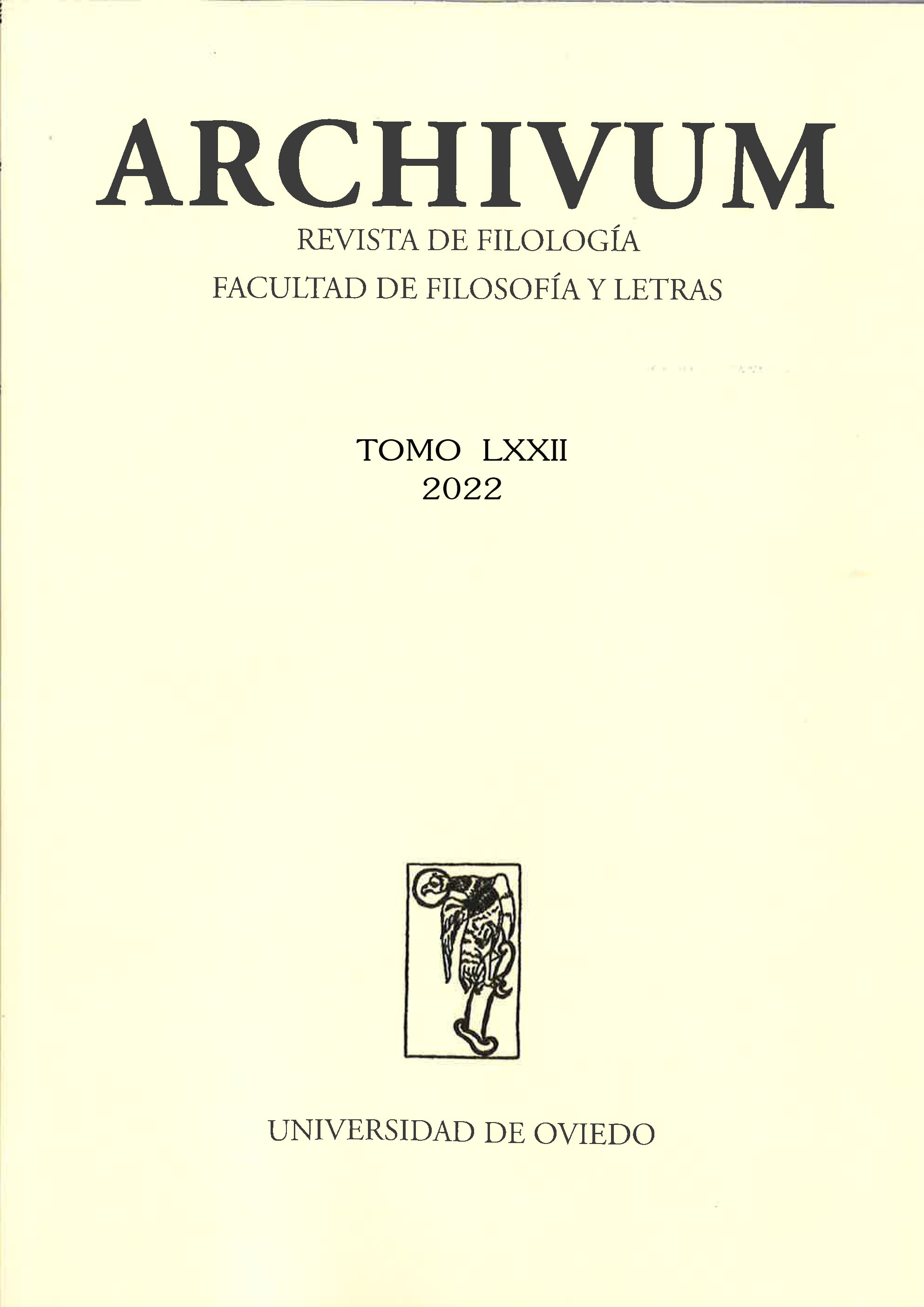Abstract
As part of their struggle to bring African women to the fore in the last decades of the 20th century, women writers like Ama Ata Aidoo, Grace Ogot and Buchi Emecheta have transformed the notion of motherhood, which has emerged as essential in the description of African female identities. On the contrary, the role of African fathers seems to remain unaltered in those same works. This article purports to mitigate the lack of studies concerning fatherhood in African women writers’ texts by exploring the failure of fatherhood in Nigerian writer Buchi Emecheta’s semi-autobiographical novels Second-Class Citizen (1974) and Kehinde (1994). These novels are distinguished by capturing a new paradigm of motherhood that contrasts with male characters, the fathers of the main characters and the husbands and fathers of their children, whose fatherhood –either fatherhood in a patriarchal traditional context in Nigeria or hybrid fatherhood in the exile– stands out due to its absence or to the negative influence of the paternal role.
References
Anderson, S. (2007) “The Economics of Dowry and Brideprice”, Journal of Economic Perspectives, 21, pp. 151-174. Disponible en https://doi.org/10.1257/jep.21.4.151 [Consultado 07-06-2022].
Atkinson, M. P. y Blackwelder, S. P. (1993) “Fathering in the 20th Century”, Journal of Marriage and Family, 55 (4), pp. 975-986.
Bhabha, H. K. (1994) The Location of culture. Londres / Nueva York: Routledge.
Bjornberg, U. y Kollind, A-K. (1996) Men’s Family Relations. Report from an International Seminar. Estocolmo: Almqvist & Wiksell International.
Connell, R. W. (1995) Masculinities. California, CA: University of California Press.
Dulac, G. (1997) “La configuration du champ de la paternité : politiques, acteurs et enjeux”, Lien Social et Politiques, 37, pp. 133-143.
DOI : 10.7202/005095ar
Emecheta, B. (1994a) Kehinde. Reading: Heinemann.
Emecheta, B. (1994b) Second-Class Citizen. Reading: Heinemann.
Fonchingong, C. C. (2006) “Unbending Gender Narratives in African Literature”, Journal of International Women’s Studies, 8 (1, November). Disponible en: https://vc.bridgew.edu/jiws/vol8/iss1/10/ [Consultado 07-06-2022]
Houseman, M. (1988) “Toward a Complex Model of Parenthood: Two African Tales”, American Ethnologist, 15 (4), pp. 658-677.
Madhavan, S., Townsend, N. W. y Garey, A. I. (2008) “‘Absent Breadwinners’: Father-Child Connections and Paternal Support in Rural South Africa”, Journal of Southern African Studies, 34 (3), pp. 647-663.
Marsiglio, W. (1995) Fatherhood: Contemporary Theory, Research, and Social Policy. Thousand Oaks: Sage.
Modak, M. y Palazzo, C. (2002) Les pères se mettent en quatre. Responsabilités quotidiennes et modèles de paternité. Lausanne: EESP.
Morrell, R. y Richter, L. (2004) “The Fatherhood Project: Confronting Issues of Masculinity and Sexuality”, Empowering Women for Gender Equity, 62, African Feminisms, 2 (1, Sexuality in Africa), pp. 36-44.
Nash, M. (2008) “Maternidades y Construcción Identitaria: Debates del S.XX”, XIV Coloquio Internacional de la AEIHM - I Coloquio Internacional Grupo Deméter. Maternidades. Discurso y Prácticas Históricas, 6 de noviembre, Oviedo.
Nwokocha, E. E. (2007) “The Agony of Motherhood among the Igbo of Nigeria”, International Journal of Sociology of the Family, 33, 1 (Aging in Asia – Spring), pp. 219-234.
Ogundele, O. J. (1996) “A Conversation with Dr. Buchi Emecheta. July, 22, 1994”. En Umeh, M. (ed.). Emerging Perspectives on Buchi Emecheta. Trenton, NJ: Africa World Press, pp. 445-456.
Ogundipe-Leslie, M. (1987) “The Female Writer and Her Commitment”. En Durosimi Jones, E., Palmer, E. y Jones, M. (eds.). Women in African Literature Today. Londres: James Currey Ltd, pp. 5-13.
Pedone, C. (2008) “Varones aventureros vs. Madres que abandonan: reconstrucción de las relaciones familiares a partir de la migración ecuatoriana”, REMHU Revista Interdisciplinar da Mobilidade Humana, 30, pp. 45-64.
Phoenix, A. y Brannen, J. (2014) “Researching family practices in everyday life: methodological reflections from two studies”, International Journal of Social Research Methodology, 17 (1), pp. 11-16. DOI: 10.1080/13645579.2014.854001
Pichler, S. (2001) Buchi Emecheta’s “London Novels”. An Intercultural Approach. Innsbruck: Wissenschaftlicher Verlag Trier.
Rosas, C. (2013) “Discusiones, voces y silencios en torno a las migraciones de mujeres y varones latinoamericanos. Notas para una agenda analítica y política”, Anuario Americanista Europeo, 11, pp. 127-148.
Schwimmer, B. (2002) “Igbo Marriage Patterns”. Disponible en https://umanitoba.ca/faculties/arts/anthropology/tutor/case_studies/igbo/igbo_marriage.html [Consultado 06-06-2022].
Segura Graíño, C. (2008) “Construcciones de la maternidad desde los feminismos”, XIV Coloquio Internacional de la AEIHM - I Coloquio Internacional Grupo Deméter Maternidades. Discursos y Prácticas Históricas, 8 de noviembre, Oviedo.
Sideris, T. (2004) “Men, Identity and Power. A Case Study of the R-Invention of ‘Tradition’: Implications for Involving Men in Training and Education about Gender”, Agenda: Empowering Women for Gender Equity, 60 (Contemporary Activism?), pp. 88-93.
Suárez-Orozco, C. (2002) “Psychocultural Factors in the Adaptation of Immigrant Youth. Gendered Responses”. En Agosín, M. (ed.). Women, Gender, and Human Rights. A Global Perspective. Piscataway, NJ: Rutgers University Press, pp. 170-88.
Umah, O. (2021) “No Marriage, No Fatherhood: Robbing Paternity”, Criminal Justice Monday, Daily Law Tips (Tip 811), Sabi Human Rights, 21 Junio 2021. Disponible en https://sabilaw.org/no-marriage-no-fatherhood-robbing-paternity/ [Consultado 03-06-2022].
Vásquez, A. (1985) “The psychology of migrant workers”, The Courier, Migrants: Between two worlds September. París: UNESCO, pp. 30-32.
Wall, K., Aboim, S. y Marinho, S. (2007) “Fatherhood, Family and Work in Men’s Lives: Negotiating New and Old Masculinities”, Recherches sociologiques et anthropologiques, 38 (2), pp. 105-122.

This work is licensed under a Creative Commons Attribution-NonCommercial-NoDerivatives 4.0 International License.

